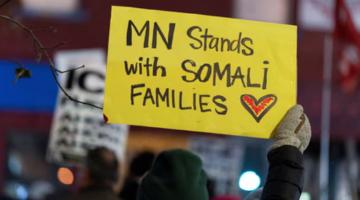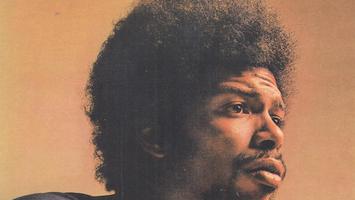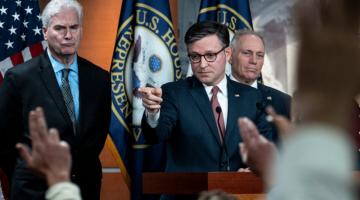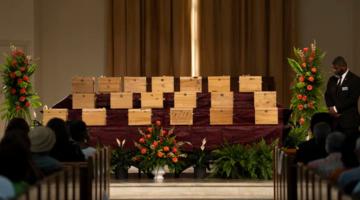“The police respond as if the black person is guilty of whatever transgression the white person said they committed.”
Recent online videos have shown African Americans being arrested, sometimes violently, in places like Starbucks and Waffle House, but also while barbecuing in a gated community or sleeping in the common area of an Ivy League university dorm, after having had the police called on them by a white people. These aggressively racist incidents made the headlines briefly and but have all but dissipated from public discussion. The Starbucks incident only lingered, arguably, because the black men arrested were not brutalized, but perhaps more importantly, because the black men at the center of the incidents didn’t portray anger toward the police, the company or the system that allowed the police to arrest them for sitting in a restaurant. In fact, their statement that it wasn’t just a black thing, turned a clear incident of racial hostility on the part of the Starbucks employee and on the police into a feel good story for Starbucks, the city and America. It became part of the lame, useless “conversation on race” Americans like to exhalt, none of which leads to anything concrete from the masses of black people.
“African Americans’ safety in public spaces is contingent upon how whites feel about our presence.”
In each of the incidents, none of the police personnel were fired or disciplined and in fact, at least initially in the Starbucks case, the cops were supported by their black supervisors. What these incidents show is that black people are never free from white hostility or police violence and it also shows that, despite the enactment of Title II, the public accommodations section of the Civil Rights Act of 1964, black people still occupy a separate and unequal status in public places.Whites can inhabit public spaces free from suspicion, hostility and state violence, whereas African Americans’ safety in public spaces is contingent upon how whites feel about our presence.
When African Americans engaged in sit-ins during the mid-60’s at restaurants, sitting in sections labeled “whites only,” they challenged the separate but equal doctrine articulated in Plessey v. Ferguson that legitimized the racial caste and apartheid system known as Jim Crow. Black people in places like Gary, Indiana occupied an area of the beach that was reserved for white people and blacks around the country did the same in their own communities. They demanded to be treated as equal citizens in public spaces and to enjoy the rights and privileges of citizenship. Nowhere is second class citizenship starker than in public spaces. Parks, restaurants, coffee shops, dining spaces, all set aside for the purpose of providing citizens with places to shop, eat, cook, socialize or just to be, all on equal terms, is the essence of citizenship in a supposed free society. However, the gains made in the 50’s and 60’s to dismantle Jim Crow in the South and de facto segregation in the North, were never perfect gains. African Americans still faced discrimination in public places whether it was being seated in the back of an empty restaurant, provided inferior service, being denied service or entry into certain spaces like night clubs, or charged higher prices for the same or lesser goods. Other mundane transgressions in public spaces include being stopped and frisked, being asked for identification, refusal to rent commercial or apartment spaces and insurance redlining.
“Black people still occupy a separate and unequal status in public places.”
The recent high-profile transgressions against blackness simply expose the dark underbelly of Black inequality and white antagonism in public and commercial areas. Most of the vitriol is aimed at the white person who calls the police, such as the white employees at Starbucks and Waffle House. However, equally complicit in ensuring inequality of black people are the police themselves. Whether it was the police who answered the call of the white Yale student and harassed the black student, or the ones who viciously, physically assaulted the young black woman (in front of her child) at Waffle House, the police have no responsibility to assume that the white instigator should be believed and they have the discretion to chastise the caller and/or to just leave. Instead, in all of these cases, they behave toward the black person, well, like they behave toward black people. They responded with suspicion, harassment and brutality in situations that deserved neither. Rather than speak to and credit the narrative of the black person to whom they were sicced on, the police respond as if the black person is guilty of whatever transgression the white person said they committed. This amounts to enforcement of separate but unequal public accommodations.
“The police have no responsibility to assume that the white instigator should be believed.”
The police were and still are a necessary instrument in the maintenance of an unjust system. They must behave this way to continue this informal version of Black Codes. Students of history know that Black Codes were laws enacted after the Civil War that regulated Black life in ways such as preventing African Americans from testifying against whites in court, denying the right to own and bear arms, and mandating employment contracts with the former enslavers. The beating of the young sister at Waffle House reminds one of Jim Crow lynch laws, where blacks could be killed based on nothing more than the accusation of a white person, typically a white woman.
Despite the nonsense of a post-racial America that was kicked around at the election of Barak Obama, our supposed right to equal citizenship with whites is not yet fulfilled and, frankly, may never be. We must remember that John Crawford was shot dead by the police in the public space of a Wal-Mart. Tamir Rice, a child, was murdered by the police in a public park, paid for by the citizens which included his mother. Trayvon Martin was killed in a gated community that his parents paid to live in. And, all across America, black people are killed by law enforcement whose salaries they pay, with bullets they paid for. The reality is that African Americans continue to occupy this space of contingent citizenship where our ability to exercise our supposed rights on the same level as whites is conditioned upon our willingness to act a certain way, our income, or whether white people call the authorities on us, which frequently leads to the police exacting the price of our life, liberty and/or health or dignity, from us based solely on the word of someone white.
“Our supposed right to equal citizenship with whites is not yet fulfilled.”
This is a modern day version of a white woman claiming rape against a black man in the south with no evidence. These incidents often resulted in death (Emmit Till, a child accused of simply whistling at a white woman) or even in the destruction of whole black communities, as in Tulsa, Oklahoma. Instead of being told to get off the sidewalk when a white person approaches, with the penalty being vigilante justice, now the domestic militia (which is what the police look and act like) is called on us if we, while in public spaces, dare to refuse to order coffee, have the temerity to ask for proper utensils, or to be tired enough to sleep in the common areas of universities we pay to attend. This neo-Jim Crow and will take more than a Starbucks training day, or conversation on race, to defeat.
Attorney Bryan K. Bullock practices law in Merrillville, Indiana.


















